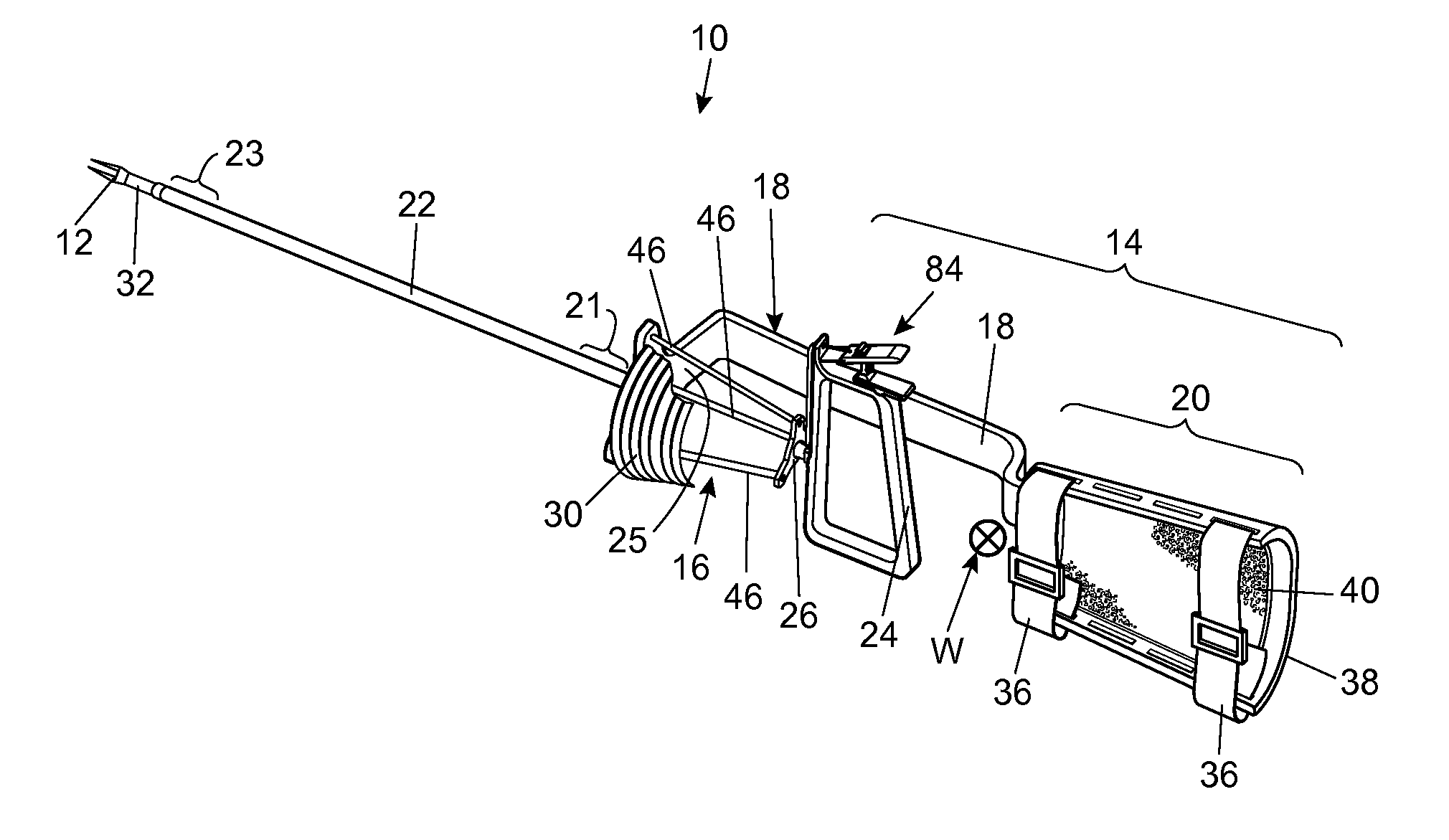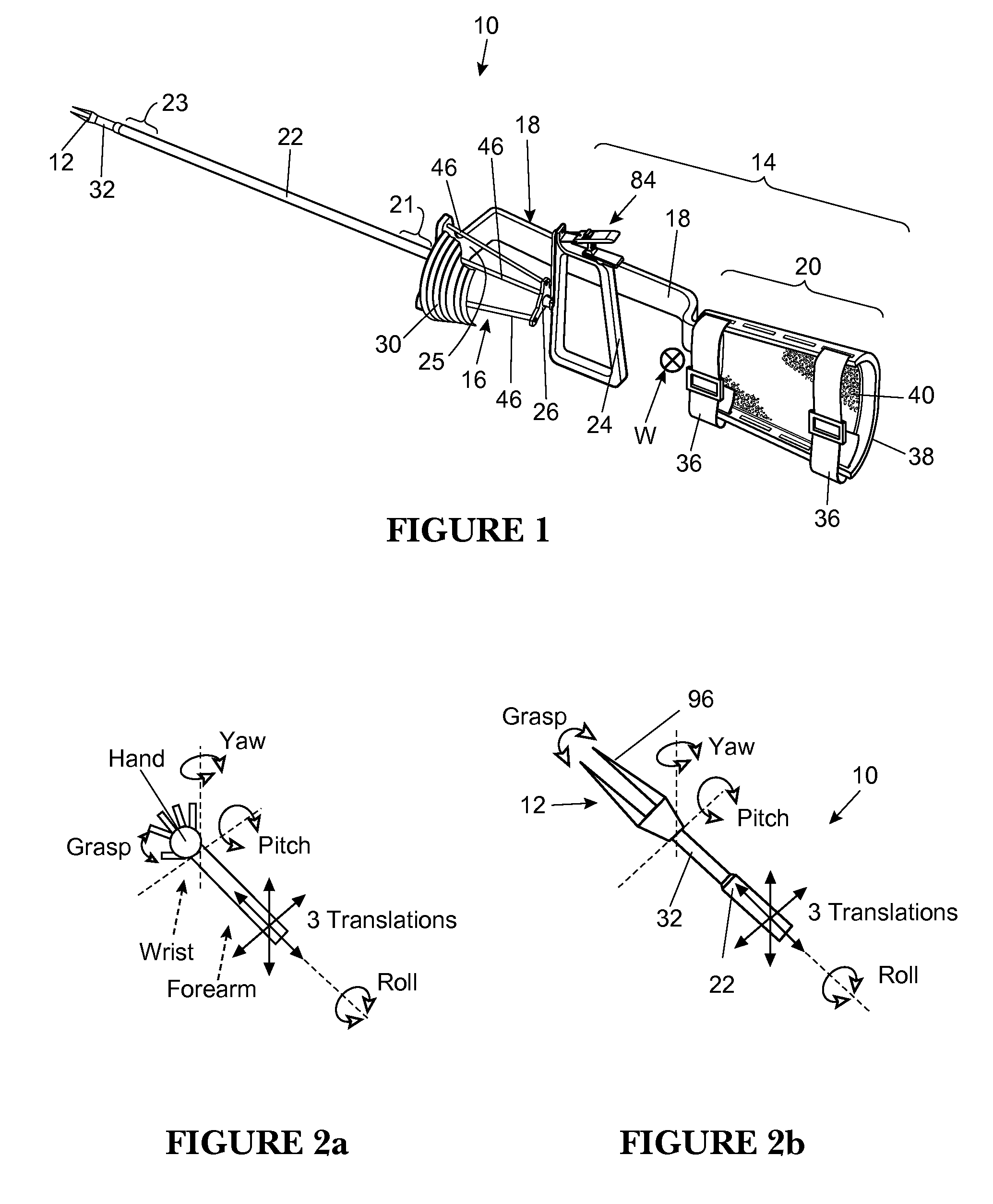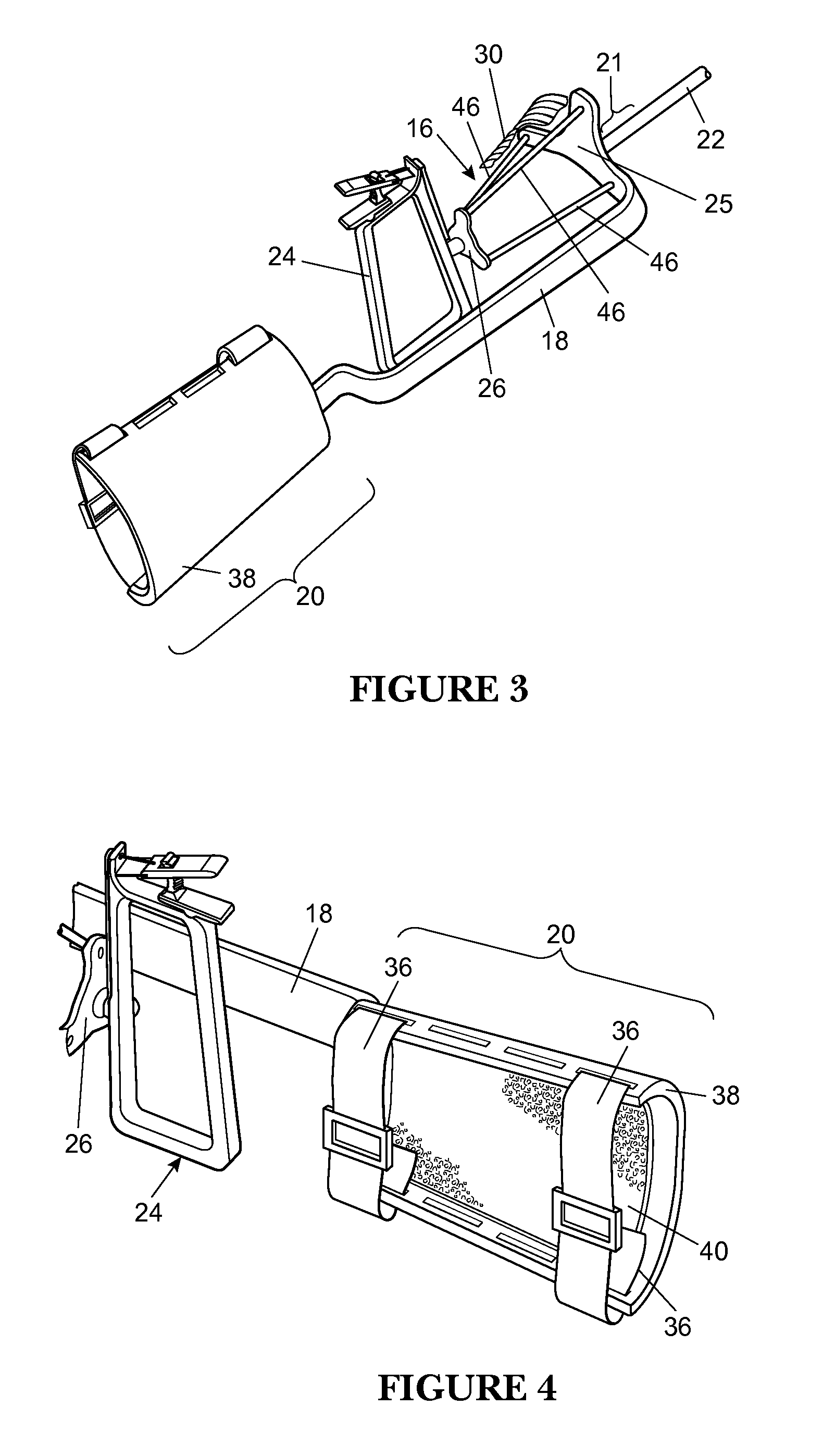Minimal access tool
a tool and minimal access technology, applied in the field of minimal access tools, can solve the problems of limiting the user's ability to fully exploit the enhanced dexterity capability of the tool, increasing the frequency and complexity of minimal access surgical (mis) and other minimal access procedures, and non-intuitive control of the do
- Summary
- Abstract
- Description
- Claims
- Application Information
AI Technical Summary
Benefits of technology
Problems solved by technology
Method used
Image
Examples
Embodiment Construction
[0029]As required, detailed embodiments of the present invention are disclosed herein; however, it is to be understood that the disclosed embodiments are merely exemplary of the invention that may be embodied in various and alternative forms. The figures are not necessarily to scale, and some features may be exaggerated or minimized to show details of particular components. Therefore, specific structural and functional details disclosed herein are not to be interpreted as limiting, but merely as a representative basis for teaching one skilled in the art to variously employ the present invention.
[0030]The present invention provides a high-dexterity, multi-DoF, minimal access tool capable of intuitive actuation for use in MIS, endoscopy, or other interventions. With reference to the drawings, a tool in accordance with the present invention is designated generally by reference numeral 10 and may provide the following functionality. First, six DoF may be provided at an end effector 12, ...
PUM
 Login to View More
Login to View More Abstract
Description
Claims
Application Information
 Login to View More
Login to View More - R&D
- Intellectual Property
- Life Sciences
- Materials
- Tech Scout
- Unparalleled Data Quality
- Higher Quality Content
- 60% Fewer Hallucinations
Browse by: Latest US Patents, China's latest patents, Technical Efficacy Thesaurus, Application Domain, Technology Topic, Popular Technical Reports.
© 2025 PatSnap. All rights reserved.Legal|Privacy policy|Modern Slavery Act Transparency Statement|Sitemap|About US| Contact US: help@patsnap.com



